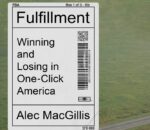Many of the state’s housing advocates are overjoyed at the imminent adoption of Senate Bills 9 and 10, which passed both houses of the legislature in the past week and now await the signature of an apparently willing Gov. Newsom
ABAG Grapples With RHNA Appeals
ABAG has received 28 appeals from 24 cities and three counties
Summer Book Roundup, 2021
California always offers ripe inspiration for scholarly and popular books alike. The past year or so has produced a particularly impressive crop, both in number and quality.
CapRadio Podcast: How Racism Has Shaped Interstate Highways
Josh spoke with Sacramento’s CapRadio about the nearly 30 cities nationwide that are currently discussing some form of highway removal and restoration; we learn more about how racism has shaped interstate highways.
Lancaster’s BLVD Delivers
An unlikely strip of urbanism in an unlikely place, The BLVD is a model more urban cities in California could learn from.
VOSD Podcast: Housing Is Everything for California’s Big Cities
In this bonus episode of the VOSD podcast, Andrew Keatts interviews journalist Josh Stephens about his book “The Urban Mystique” and some of the most pressing California housing issues.
Voice of S.D. Podcast: Housing Is Everything for California’s Big Cities
Voice of San Diego’s Andrew Keatts interviews journalist Josh Stephens about his book “The Urban Mystique” and some of the most pressing California housing issues.
The Plex Paradox
CP&DR to discuss exactly what combination of art and science will be required for cities to undo single-family zoning
E-Commerce Boom Leads To Warehouse Moratoriums
Amid pressure from community groups, Inland Empire cities reconsider benefits of big warehouses.
California Cities Cut Parking Requirements
Cities across California are eliminating parking minimums in order to reduce automobile dependency and promote better urban design. The state legislature is getting in on the act too.
The High, Hidden Costs of Amazon
Review of Fulfillment, by Alec MacGinnis
Eli Broad, Urbanist
The great irony of the philanthropist’s life was that he made his billions on sprawl — and then poured it into making Los Angeles a more urban city.
Surplus Land Act Upends Public Agency Development Plans
According to the Surplus Land Act (SLA), a relatively new state law whose implementing guidelines went into effect in January, all of these properties must be made available to affordable housing developers first. While state officials defend the guidelines, the landowning agencies say the law will undermine their vision for the property – and maybe even hinder their ability to build the affordable housing that the law seeks to create.
The Phony Debate Over Wall Street and the Housing Crisis
Over the past few years, concerns about “Wall Street ownership” of houses in California has grown increasingly serious, with the The Blackstone Group being the poster child for a handful of finance companies that buy up single-family homes, often in disadvantaged areas, only to kick out tenants and increase rents.
Updated Cal EnviroScreen Will Improve State’s EJ Efforts
In March, the California Office of Environmental Health Hazard Assessment (OEHHA) released the draft of its fourth iteration of CalEnviroScreen (CES). First released in 2013, CES is a database of environmental hazards that forms the basis of myriad state and local efforts to limit human exposure and strive for environmental justice.
The Miseducation of Cities
A review of the provocative new book by Davarian L. Baldwin, In the Shadow of the Ivory Tower
The Future of Cities, Urban Life, and Social Cohesion with Josh Stephens
The COVID-19 pandemic, along with the rise of remote work, has brought significant speculation about the future of cities. In order to understand these shifts and trends, we spoke with urban planning expert Josh Stephens.





